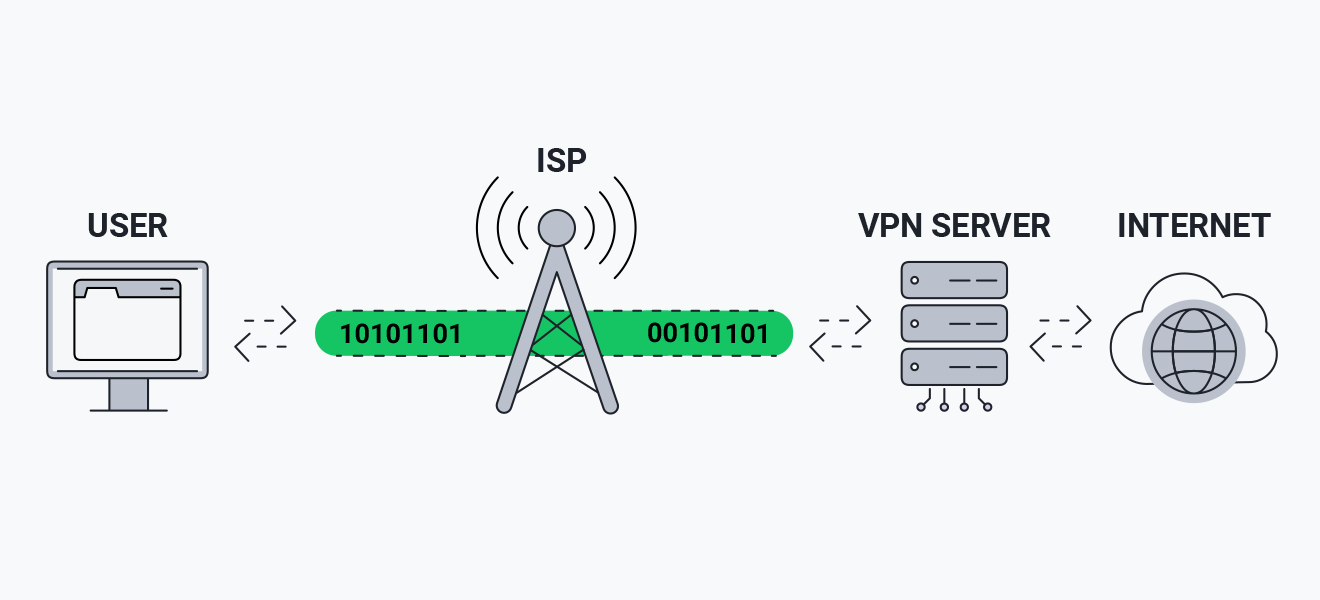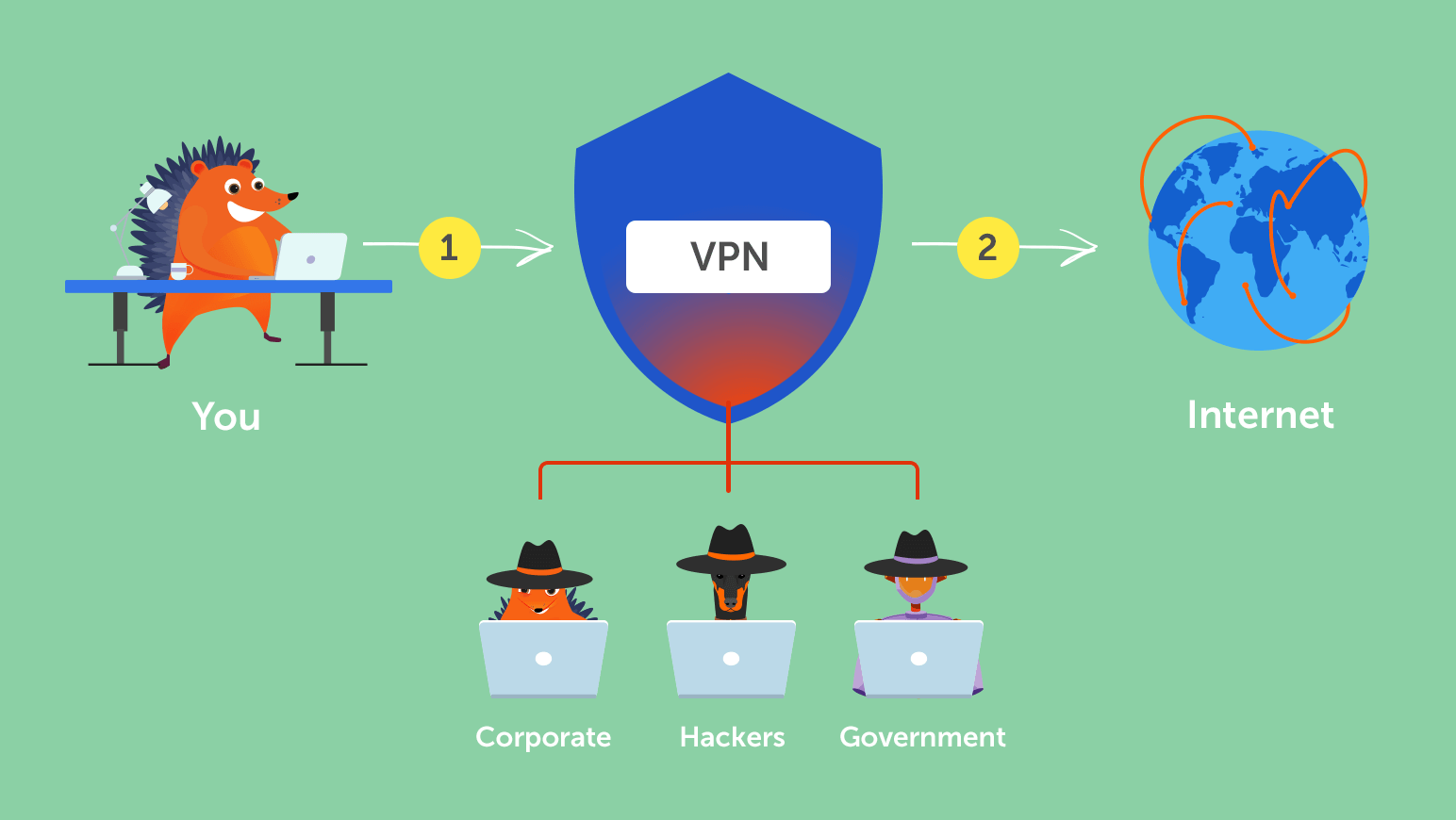Featured
Table of Contents
- – What Is A Vpn And How Does It Work?
- – What Is A Business Vpn? │ Business Vpn Uses An...
- – Beginner's Guide To Vpn - Everything You Need ...
- – What Is Vpn? Different Types Of Vpns
- – How Does A Vpn Work?
- – Does Starlink Work With A Vpn?
- – Vpn Encryption: How Does Vpn Encryption Work...
- – It's Time To Stop Paying For A Vpn
What Is A Vpn And How Does It Work?
In a mobile VPN, the server still sits at the edge of the organization's network, allowing safe tunneled access by authenticated, licensed clients. Mobile VPN tunnels are not connected to physical IP addresses.
Hardware VPNs provide a number of benefits over software-based VPNs. A hardware VPN is more costly than a software-based one. Since of the expense, hardware VPNs are more practical for bigger services.

Paid supplier choices tend to be recommended regularly than complimentary ones, nevertheless. Some VPNvendors, among lots of, consist of the following: consists of a strong collection of security features with a large collection of servers. Nord, VPN has features such as Tor internet browser connections for confidential web browsing, while preserving a strong stance on client personal privacy.
What Is A Business Vpn? │ Business Vpn Uses And ...
It does not offer too much in terms of additional functions and privacy tools. Still, it is normally considered a great VPN service. is a VPN service with a large and diverse set of distributed servers. It has strong privacy and info practices concentrated on security and offers extra functions such as split tunneling.
VPNs are legal in the United States, but users and companies must inspect if they are legal in specific nations. Lots of VPNs offer exceptionally similar innovations, so it can be difficult to pick which VPN will work best. Paid VPN services tend to be more relied on and include more security features.
Around 2017, web users in the United States learned that ISPs could gather and sell their browsing history, and net neutrality became a concept citizens needed to defend-- and effectively lost. A costs was passed by the U.S. House of Representatives in 2019 to revive net neutrality, but was ultimately obstructed by the Senate.
Beginner's Guide To Vpn - Everything You Need [5000+ ...
With this understanding, making use of VPNs became a more legitimate requirement for individuals.

A VPN reroutes your traffic through a remote server, encrypting it while doing so. Generally, when you try to access a site, your ISP (Web Service Company) gets the request and reroutes you to your destination. However when you connect to a VPN, it redirects your internet traffic through a remote server before sending it over to your destination.
Numerous years earlier, the most typical way to link computer systems in between multiple workplaces was by utilizing a rented line. Leased lines, such as ISDN (incorporated services digital network, 128 Kbps), are private network connections that a telecommunications business can lease to its customers.
What Is Vpn? Different Types Of Vpns
These connections form a single wide-area network (WAN) for the service. Leased lines are trustworthy and protected, the leases are pricey, with expenses increasing as the range in between offices boosts. Today, the web is more accessible than ever in the past, and internet service suppliers (ISPs) continue to develop faster and more dependable services at lower costs than rented lines.

Paid VPN services operate really much like business VPNs but go through a VPN provider to reach the internet, instead of by means of a private organization. These services are extremely simple to utilize. All you have to do is download the software, install it on your device, and link to the server of your choice.
Let's check out an example that explains how a VPN compares to other networking choices.
How Does A Vpn Work?
All your web traffic is routed through this tunnel to the server, which then sends out the traffic off to the public internet as usual. Data returning to your device makes the same journey: from the internet, to the VPN server, through the encrypted connection, and back to your device.
There are a few alternatives out there to set up your own, such as Overview. Doing so is fairly straightforward, however you'll either need to maintain a server or lease one, which is less basic. While there are some efforts to make self-hosted VPNs more available, it's something best left to tinkerers who are excited to get their hands (digitally) filthy.
If you do not like that a company you're currently paying is making money from your information or if you have issues about ISPs hoarding in-depth info about your activities, a VPN will help. Not even your ISP can see your web traffic when you utilize a VPN.VPNs likewise make it harder for advertisers and others to track you online.
Does Starlink Work With A Vpn?
When the VPN is active, your real IP address is hidden, and anybody viewing you can only see the IP address of the VPN server. By hiding your real IP address, VPNs reject snoops one tool utilized to recognize and track you online. Regardless of that, VPNs do not make you completely confidential online.

Some VPN services include dedicated anti-virus tools also, and some anti-viruses companies now provide VPNs. We do not typically evaluate the malware-detecting abilities of VPNs, given that we see VPNs primarily as a privacy service. To resolve the hazard of malware, we believe standalone anti-malware softwarewhether it's one you purchase or the one that ships with your computerdoes a better job.
A VPN will hide the contents of your web traffic from some observers and can make it harder for you to be tracked online. A VPN can, at best, provide only minimal defense versus the hazards you're most likely to experience on the web: malware, social engineering rip-offs, and phishing sites.
Vpn Encryption: How Does Vpn Encryption Work, And Why ...
All your web traffic is routed through this tunnel to the server, which then sends out the traffic off to the general public web as usual. Data returning to your device makes the very same journey: from the web, to the VPN server, through the encrypted connection, and back to your device.

There are a few alternatives out there to set up your own, such as Overview. Doing so is fairly simple, however you'll either need to maintain a server or lease one, which is less simple. While there are some efforts to make self-hosted VPNs more available, it's something best delegated tinkerers who are eager to get their hands (digitally) dirty.
If you don't like that a company you're already paying is making money from your data or if you have concerns about ISPs hoarding in-depth details about your activities, a VPN will assist. Not even your ISP can see your web traffic when you use a VPN.VPNs also make it harder for advertisers and others to track you online.
It's Time To Stop Paying For A Vpn
When the VPN is active, your true IP address is concealed, and anyone seeing you can only see the IP address of the VPN server. By hiding your genuine IP address, VPNs deny snoops one tool used to recognize and track you online. In spite of that, VPNs do not make you totally anonymous online.
Some VPN services include devoted antivirus tools as well, and some anti-viruses business now provide VPNs. We do not typically check the malware-detecting abilities of VPNs, because we view VPNs mostly as a personal privacy service.
A VPN will conceal the contents of your web traffic from some observers and can make it harder for you to be tracked online. However a VPN can, at best, supply just limited protection versus the dangers you're probably to encounter on the internet: malware, social engineering frauds, and phishing sites.
Table of Contents
- – What Is A Vpn And How Does It Work?
- – What Is A Business Vpn? │ Business Vpn Uses An...
- – Beginner's Guide To Vpn - Everything You Need ...
- – What Is Vpn? Different Types Of Vpns
- – How Does A Vpn Work?
- – Does Starlink Work With A Vpn?
- – Vpn Encryption: How Does Vpn Encryption Work...
- – It's Time To Stop Paying For A Vpn
Latest Posts
Best Vpn For Business
What Is A Vpn?
Best Vpns For Small Businesses (2023)
More
Latest Posts
Best Vpn For Business
What Is A Vpn?
Best Vpns For Small Businesses (2023)